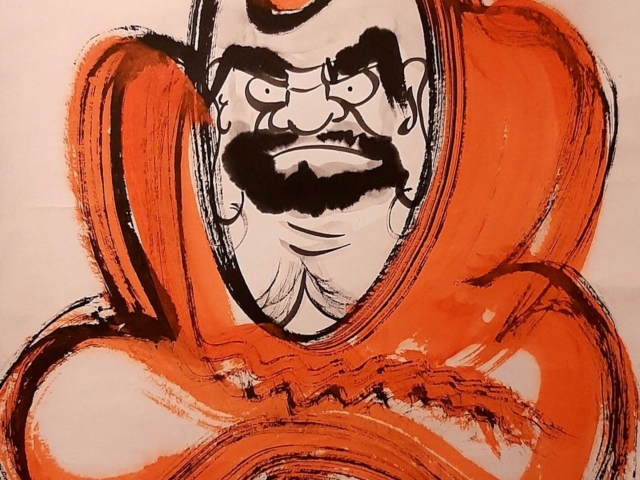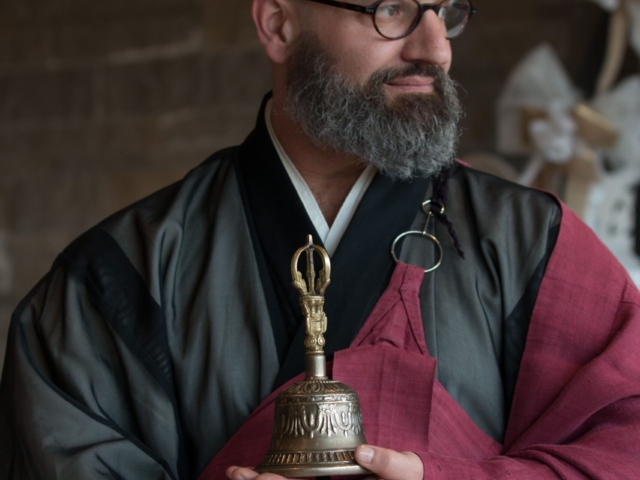Unio Mystica – The Mystical Wedding – Mystics in the West & Zen Masters in the East – The Holy Grail, the living word that heals the soul!
Unio Mystica - Mystical Wedding
In the East they are called Zen-Masters and in the West they are called Mystics. The saints and sages who seek the living word that heals the soul. It is about the experience of a divine or absolute reality and the efforts to achieve such an experience, the unio mystica or mystical wedding.
The dog chases the ball, the tiger bites the thrower! The unmoved mover: God has never moved at all and yet the iron wheel melts!
Zen & Mystic
Zen and mysticism are about religious experience and the living core of every religion, in which the only thing that matters is practice - religious experience, realization. And religious experience in the West has the language of Christianity and in the East the language of Buddhism. It is not about proof of God but about experiences of God (West) or about absolute reality (East)! Meditation and contemplation do not serve to develop the ego and nurture the personality, but rather to reveal the divine or absolute self. In it, knowledge is not sought and achieved, but rather certainty and wisdom.
The Paradox - Breakthrough from the I to the Self
The LOGOS, the unmoved mover, the living word, the sword of wisdom that brings to life and kills at the same time with one blow. The word that heals my soul. Zen meditation with paradoxical questions (Koan, Hwadu) aims at a breakthrough from a consciousness limited by the I form into the non-I-like self. An experience of religious transformation and a mystical experience, with its preliminary stages consisting of "letting go" and "emptying images and ideas".
Because only the paradox can even come close to grasping the fullness of life, but the unambiguousness and the lack of contradiction are one-sided and therefore unsuitable for expressing the incomprehensible.
Mystics in the West - Monastic-Mystical Striving
In the Middle Ages, the personal mystical experience of God lived primarily in the monasteries. The monasteries were thus also the backbone of religion and the basis of a healthy society. The highest goal of monastic-mystical striving remains this experience of God in the unio mystica, the mystical union with God, in a broader sense the search for an "awareness of the immediate presence of God".
Unio Mystica - Becoming One with God
The mystical marriage (unio mystica) is the immediate experience of God. But how can one communicate something that is not fixed in conceptual thinking? It is only possible through the paradox. The living and the lived, the loving and the beloved disappear in the mystical being of absoluteness. One becomes one.
Zen-Masters in the East - Enlightenment
Thus enlightenment for the Zen masters in the East is the unio mystica of the mystics in the West. Enlightenment, such as "recognizing one's own self" or "recognizing one's own nature" is a spiritual experience in the Zen tradition. It is an initial awakening experience in which the awakened person recognizes his own true nature, his true self, which enables him to work on understanding this knowledge in his daily life from then on. It is also often translated as "self-essence-view", which means that one recognizes the true nature of one's being and thereby of all that exists.
The task for the practitioner is then to transfer this state to his daily life, that is, to live according to this deeply felt knowledge. The personal work towards the goal of this realization is usually a lengthy process of meditation and introspection under the guidance of a Zen master or another teacher. The underlying method is called: Who am I?, because it is precisely this question that leads the search for one's own true nature.
The first step on the path to the Mystical Wedding is the thought that no thinking self exists, but that it is precisely the process of thinking that creates the illusion of a self.



